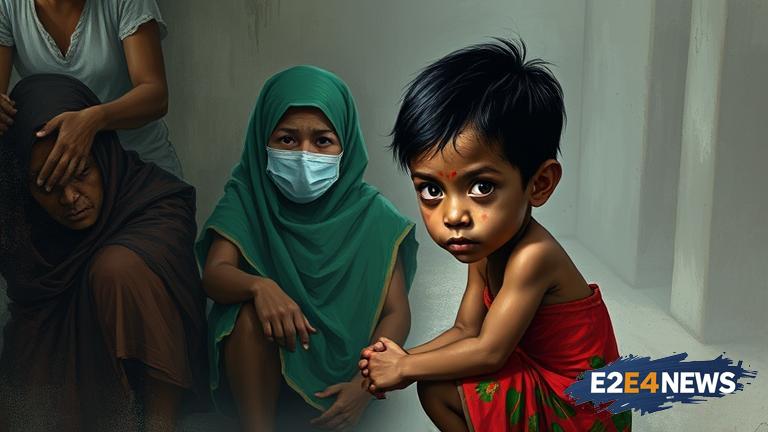Bangladesh has been witnessing a disturbing trend of increasing child rape cases, which has sent shockwaves across the nation. The country’s law enforcement agencies and human rights organizations have reported a significant rise in the number of child rape cases over the past few years. According to the Bangladesh Shishu Adhikar Forum, a child rights organization, there were over 1,000 reported cases of child rape in 2020 alone. The actual number of cases is believed to be much higher, as many incidents go unreported due to social stigma and fear of retaliation. The victims of child rape in Bangladesh are often subjected to intense trauma, physical harm, and emotional distress. In many cases, the perpetrators are known to the victims, including family members, relatives, and neighbors. The lack of effective laws and implementation has been cited as a major factor contributing to the rise in child rape cases. The current laws in Bangladesh do not provide adequate protection to child victims, and the prosecution rate for child rape cases is extremely low. Human rights organizations have been demanding stricter laws and harsher punishments for perpetrators of child rape. The government of Bangladesh has been under pressure to take concrete steps to address the issue. In response, the government has introduced new laws and policies aimed at combating child rape. However, the implementation of these laws remains a major challenge. The role of awareness and education in preventing child rape cannot be overstated. Many organizations are working to educate children, parents, and communities about the importance of child safety and the need to report suspicious activities. The media has also been playing a crucial role in highlighting the issue and creating awareness about child rape. Despite the efforts, the number of child rape cases continues to rise, and the situation remains grim. The international community has also been expressing concern over the growing issue of child rape in Bangladesh. The United Nations Children’s Fund (UNICEF) has been working with the government of Bangladesh to strengthen the country’s child protection systems. The European Union has also been providing support to Bangladesh to combat child rape. The issue of child rape is not limited to Bangladesh, and it is a global problem that requires a collective response. The need for a concerted effort to prevent child rape and protect child victims is more pressing than ever. The government, civil society, and the international community must work together to address the root causes of child rape and ensure justice for the victims. In conclusion, the rise in child rape cases in Bangladesh is a matter of grave concern that requires immediate attention and action. The government and other stakeholders must take concrete steps to prevent child rape, protect child victims, and ensure that perpetrators are brought to justice.
